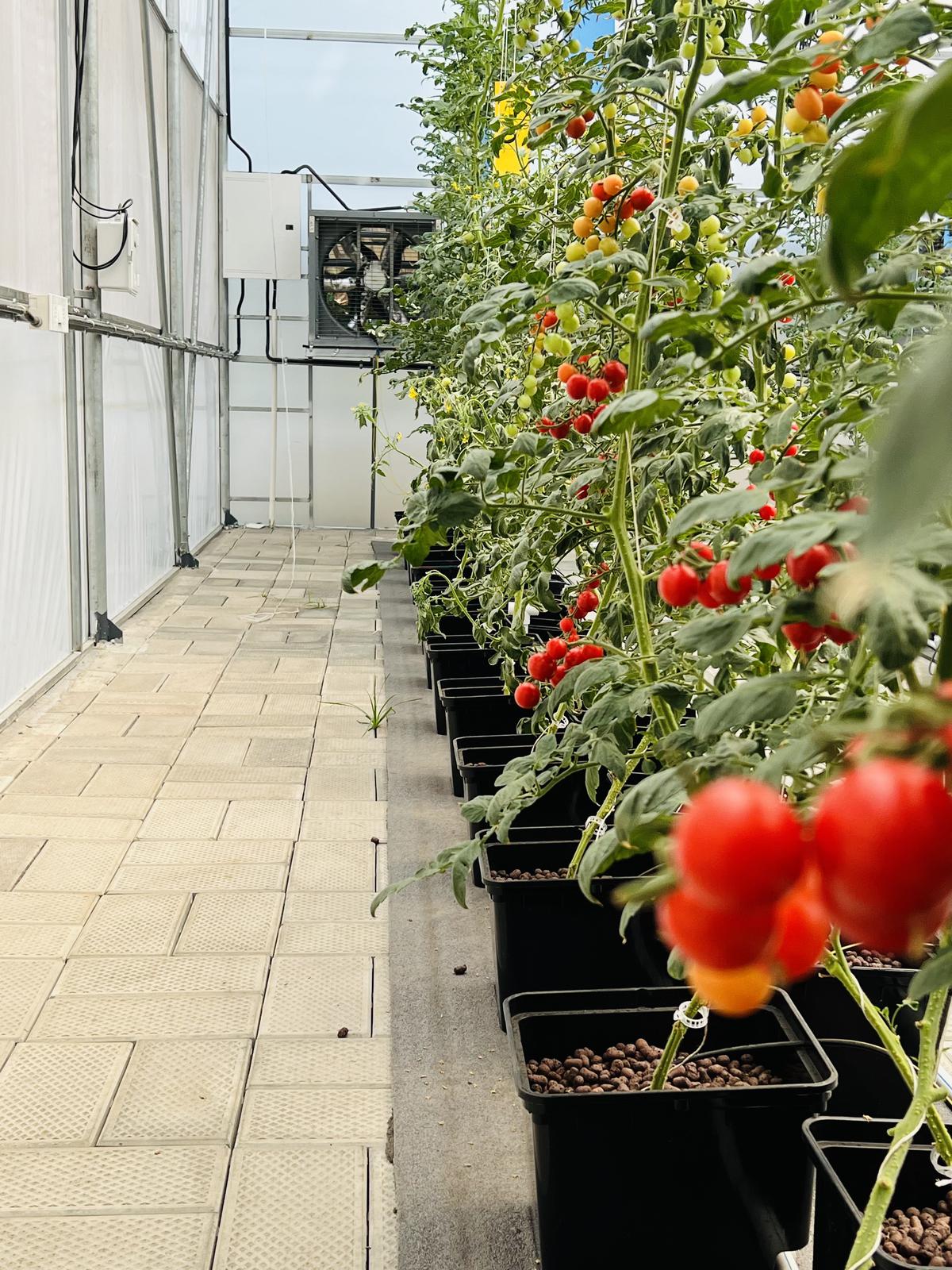Kochi-based agri-tech company sets up hydroponic farms for restaurants and resorts
Kochi-based agri-tech company sets up hydroponic farms for restaurants and resorts
Tonico Cafe in Kakkanad, Kochi, gets fresh basil, kale and cilantro from a garden on its own walls. The cafe, popular for its pastas and soups, turned to hydroponic farming a few months ago, in order to produce its own supplies. “We need a lot of basil for our signature pesto sauce. Good quality basil is difficult to procure in the State and we decided to grow our own,” says Tony Jose, founder and CEO of Tonico. Tony now gets a steady supply of basil from his vertical garden.
Hydroponics, the increasingly popular soilless farming technique, has been finding takers across the country. The system, which requires very little space and water, has caught on among those who live in urban apartments, especially during the lockdown months.
Self-sufficient restaurants
“In between successive lockdowns, restaurants and resorts found it extremely difficult to find good quality veggies. Now, there is a growing interest among restaurant owners who want to set up their own hydroponic farms to become self-sufficient,” says Ashwin Ramachandran, founder and CEO PlantMe Agro Solutions, a Kochi-based agri-tech startup, which has been setting up hydroponic vegetable and fruit gardens for commercial establishments across the State.
Started by Ashwin, Nithin Kumar, Parvathy Sasikumar and Akhila Ramdas, a year-and-a-half ago, PlantMe aims at educating and encouraging more businesses to grow their own greens. “The idea is to make people aware of the importance of eating clean, sustainable food,” says Ashwin.
Elixir Hills, a resort in Munnar, recently set up a poly house for hydroponic farming on 2,000 sq.ft, yielding large bounties of cherry tomatoes, cucumber, peppers and strawberries, which take care of most of its kitchen needs. Though these vegetables and fruits do grow Munnar, which is cooler than other parts of Kerala, the yield is usually susceptible to the vagaries of weather. “By setting up a protected environment and not using pesticides, we are looking at a long term goal of achieving food security,” says Luke Stephen, managing director of Elixir.

Cherry tomatoes at the poly house at PlantMe’s office in Aluva
| Photo Credit: Special Arrangement
A vertical harvest
Stating that traditional farming methods are becoming increasingly challenging in Kerala, which has been dealing with recurrent floods since 2018, Ashwin says hydroponic systems can be installed vertically, thus eliminating the need for a large space. “And since the exotic vegetables are grown in a controlled environment, the farmer can be sure of a high yield,” he adds.
PlantMe’s office in Aluva has a poly house, which grows yellow peppers, egg-plants, cherry tomatoes, cucumber, bok choy, basil and a variety of herbs. The temperature in the poly house at 12.30 pm is at a pleasant 27 degree C, when it is about 33 degrees C outside. Evaporating cooling pads installed within the poly house regulate the temperature and humidity needed for cultivating these vegetables.
The company sets up such poly houses for commercial farmers and establishments, offering training and assistance until the first harvest. A poly house needs a minimum area of 500 sq.ft and cost Rs 2.5 lakh upwards, depending on the kind of vegetables the grower wants to cultivate and the location of the land.
The challenges
The system, however, is not immune to challenges. Temperature control systems have to be stringent to ensure maximum yield. And growers need to learn the basics of plant science, hydroponics and agri-tech.
So far, PlantMe has catered to over 200 urban farmers in Kerala – both individual and commercial using a nutrient film technique (NFT), which involves water being pumped into a grow tray with the help of a pump. The water nutrient solution is recycled through a drained food grade tube, creating an ideal environment to grow lettuce, amaranthus, mint and kale.

Cucumber grown in a hydroponic system
| Photo Credit: Special Arrangement
The company is currently building large indoor refrigerator-like vertical units, which restaurants (and individual homes), can install, where greens are grown under grow lights. From sorrel to parsley, oregano and lavender, microgreens can then be plucked from one’s own farm unit. Making a fresh salad has never been this easy.
























